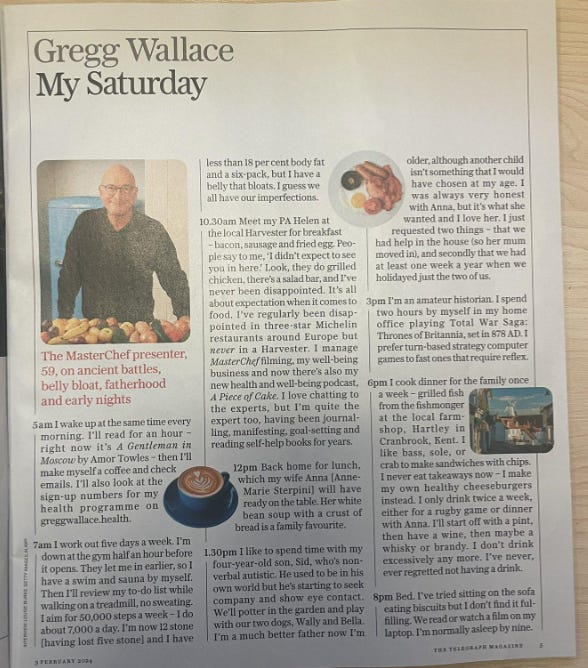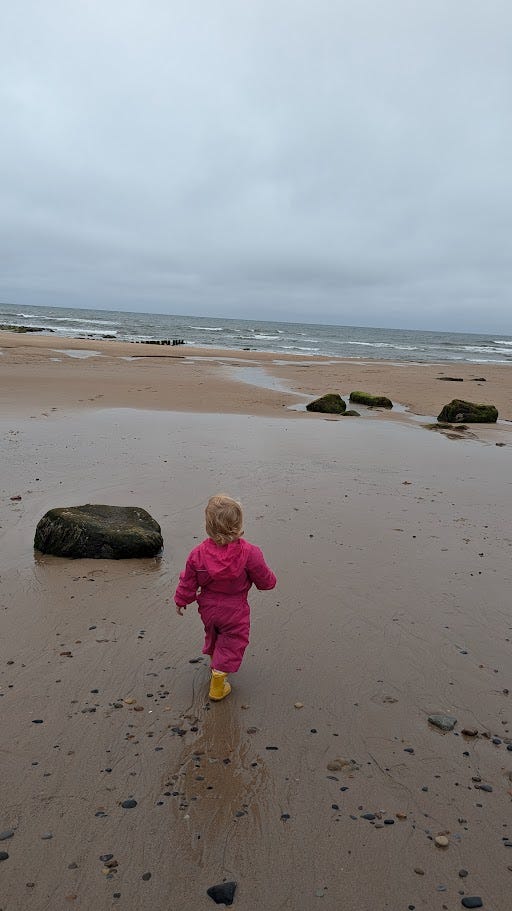This morning, I took Potter to the vet for his monthly arthritis injection and drove past my childhood street. I no longer live in my hometown (because I can’t afford to), and my family home now belongs to someone else.
Though angsty teenage me sometimes resented where I grew up, I now see in a totally different light. As I passed by my old street today, I was overwhelmed by how lucky I was to grow up somewhere so beautiful and safe. I had access to everything I needed, and I could play outside with minimal risk. What a privilege that was.
I’d never recognised that privilege until I met people from outside of my immediate area in my late teens and early twenties. I also encountered people who were far more privileged than me. For example, young people who didn’t have part-time jobs while studying, or owned cars in their teens, always had the latest trends, etc.
Privilege is a divisive topic, because no one likes to acknowledge that they have it. There is a common misunderstanding that recognising that you have privilege will somehow erase the hardships you have experienced to get where you are.
You can be privileged and still suffer.
I can’t help but laugh when someone from the baby boomer generation tells me how much harder we (Millenials) have it. I have even heard my own peers remark about Gen Z and Alpha, saying that things are easier for them than they ever were for us.
Some of these theories can be proven or disproven through cold, hard facts; while others can only be assessed through qualitative conversations exploring the lived reality of every individual. At the end of the day, we can only speak in averages, and each person’s experience may not be comparable, even if they are the same demographic on paper.
In 1969, the average first-time buyer was 25, and the average first-time house price was £4,000. Now, only 8% of people own a home by 25. In fact, over a third of homes in the UK are owned by families where at least one occupant is 65 or over. That’s what I call privilege.
Saying that, privilege isn’t a static thing. Many of those buying homes in 1969 would have been anything but privileged. Their parents likely fought in or witnessed WWII, and there was little to no research or literature on spousal abuse. Getting a divorce was very difficult until the Matrimonial Causes Act 1973, and it was actually legal for a spouse to rape their husband or wife until 2003.
A woman was unlikely to get a mortgage on her own until the late 1970s, and only in 1975 could they open a bank account in their own name.
So, when you think about a woman living in an unhappy, or abusive marriage, but owning a home with her husband in 1970… is she privileged because she was able to buy a house (thanks to her husband)? Or do the circumstances outweigh the benefits of privilege?
When you were born has a huge impact on your privilege— but that doesn’t stay fixed for your whole life. There will be women of that generation who experienced great hardship but now enjoy more privilege and financial freedom than those born later.
Nuance is the worst enemy of privilege
While writing this piece, I have googled all sorts of pointless questions like: “are we more privileged now than before?” and “who is the most privileged type of person?” and the only conclusion I can draw is that you can only measure privilege to a certain extent, and then it’s up for debate after that.
If you tell someone to check their privilege, you can guarantee this won’t land well. Most people do not like being told they have privilege, because it’s believed by some that having privilege means you didn’t work hard to get where you are today.
Ignorance is bliss
I’m sure you all remember that infamous interview with Masterchef star Gregg Wallace, in which he shared his totally bonkers perfect Saturday, where he only mentions his young child with wife, Anne-Marie Sterpini, at 1:30 in the afternoon. Where is your child until lunch, Gregg? Oh, he’s with your wife and her mother, who lives with you to provide “help in the house”.
I can’t help but think the editorial team had a good chuckle at this piece as they prepared to publish it, knowing fine well what a rage-baiting media storm it would bring. The level of privilege presented in this article is truly meme-worthy.
The issue isn’t that Gregg is privileged, as I’d argue most celebrities of his stature have help around the house, and are able to provide for their families on just one income. It’s the fact that he is completely ignorant of it. Playing his computer game for two hours in the middle of the day, when he has a job, a wife, a young child and all of the other responsibilities of any man his age? That’s wild.
Obviously, this is an extreme example, but it leads on nicely to the next section…
Male privilege is a whole other ball game
I think privilege is much more complex than the BuzzFeed quiz leads us to believe. Sure, if you are male, white, not disabled, and live in the Global North, then you have privilege. But this blanket attitude is only fuel in the fire of Men’s Rights Activists, who argue that this is the hardest time to be a man. It’s worth mentioning that MRAs are likely feeling the pinch of a drive toward diversity, meaning they are no longer the default choice for jobs or opportunities as the talent pool broadens.
The truth is, if everyone else is finally getting the boost they deserve, you will probably feel like you are being taken down a peg.
Why check your privilege?
This all comes down to empathy. If you are able to identify areas of your own life where you have received opportunities that others may have not, then you are well on your way to checking your privilege.
Knowing you have privilege in one area of your life may not translate to another. For example, I am a white woman who attended a state school in a middle-class area, but I am also a self-employed parent who lacks familial childcare support. I can see how, by virtue of being able to work from home, I am able to pay for childcare for my daughter, and in many ways, this is a privilege. But that’s not to say I didn’t overcome adversity or work hard to get where I am now.
I’m interested to hear what you think about this nuanced subject, how you would react to being called privileged, and whether you identify with this term at all. Let me know in the comments below.
I wouldn’t be surprised if this July ended up being the wettest one on record. Any and all touching of grass requires you to bring significant waterproof layers at all times. I did get down to the beach with our daughter at the weekend, and she managed about 30 seconds before falling into a puddle. So, we took shelter at the cafe and enjoyed an ice lolly while looking out across the wild North Sea.
Often, I find myself not wanting to do anything because the weather is rubbish, but then I remember it’s just water, and sometimes you just have to get outside anyway.
Other things I’ve enjoyed this week:
🎙️Films To Be Buried With - Best Films of the Year 2023 with Nish Kumar - I finally finished listened to this two-parter episode of one of my favourite podcasts. I’ve got so many films I need to catch up with now!
🎥 May December (NowTV) - I watched this based on a recommendation of the previous. It’s loosely based on the real story of Mary Kay Letourneau, who was charged with sexual assault of her 12-year-old student, only to get out many years later and marry him as an adult, and even give birth to his children in prison. The setup of the film is particularly interesting, as it follows Natalie Portman who is living with Julianne Moore (the Mary Kay character) as she is going to play her in a film about her life.
Before I go, I just want to mention my fundraising campaign for this year’s GNR. As usual, I am running for Pancreatic Cancer UK, a charity which is very close to my heart following my mam’s premature passing in 2019.
🎧I’m on Spotify!
If you like the audio version of this newsletter, you can listen to them all over on Spotify. Here’s last week’s:
💌 About this email
I’m Ellen, and I write about mental health for the chronically online. I am a freelance copywriter, strategist and web designer, and I work from home with my husband, Craig, at Content By The Sea. We have two rescue greyhounds, Potter and Harmony, and a toddler.
I started this newsletter in March 2020 and have sent over 170 emails; currently, I have over 1,200 subscribers. I write about a wide variety of topics, including diet culture, my love of running, jealousy, my life falling apart, mam guilt, and this dystopian world we all live in.
💛 How you can support me
If you like reading my weekly emails, you can give me a kickback in one or more of the following ways:
📨 Share this post
📬 Subscribe for free (if you haven’t already!)
💬 Leave a comment on this newsletter
💰Sign up to be a paid supporter of the newsletter for just £4 a month or £40 a year.
The current perks of being a paid subscriber are receiving one extra Touching Grass email each month with all of my top films, shows, podcasts and books. And, most importantly, you are supporting me to keep writing this newsletter week after week.









